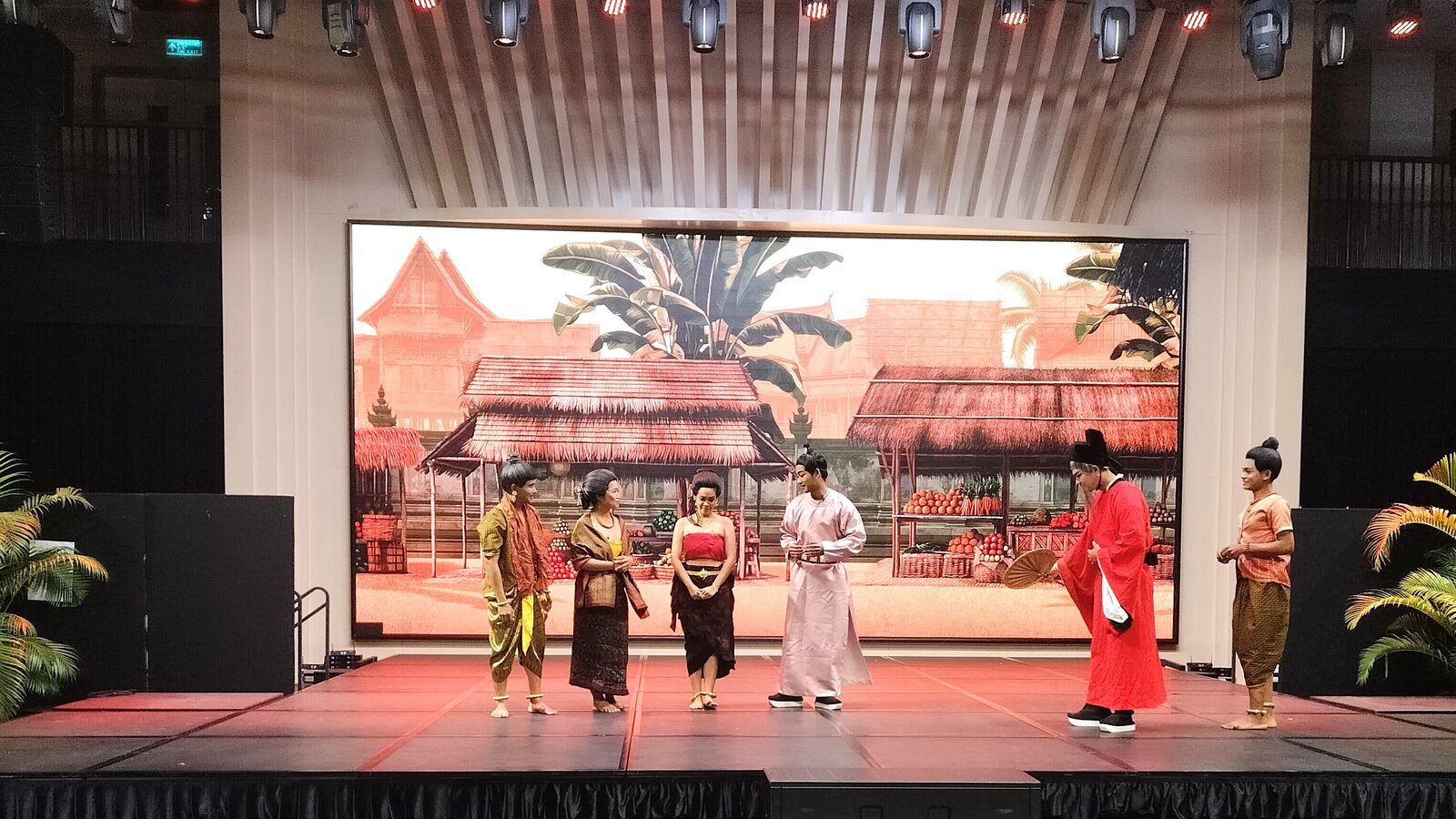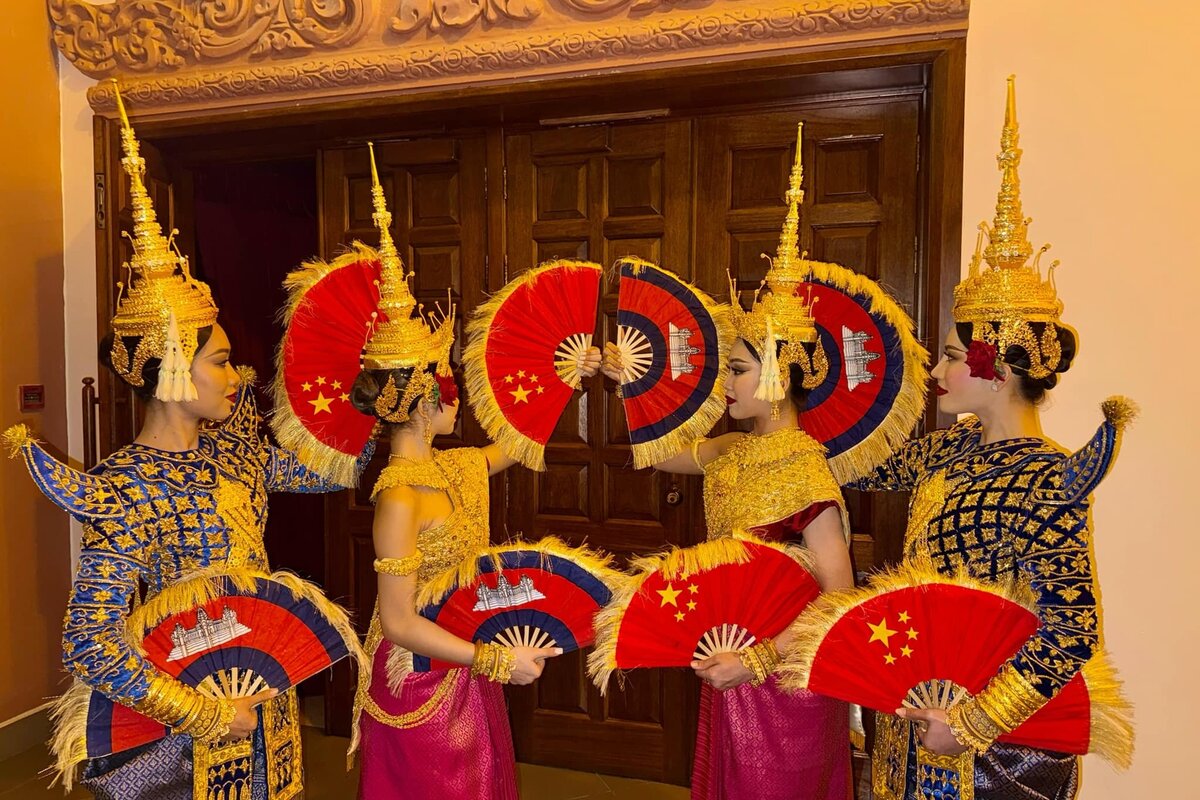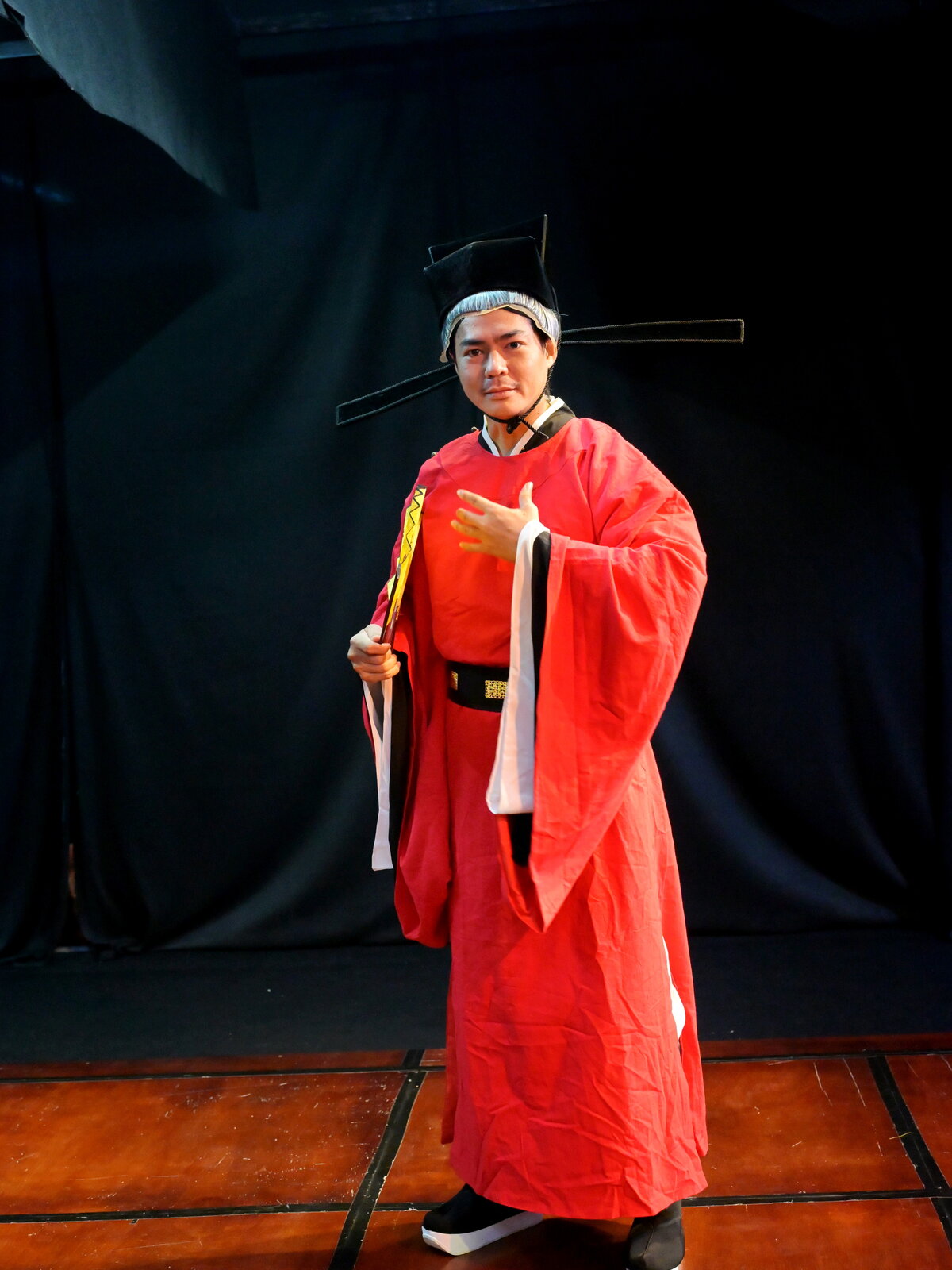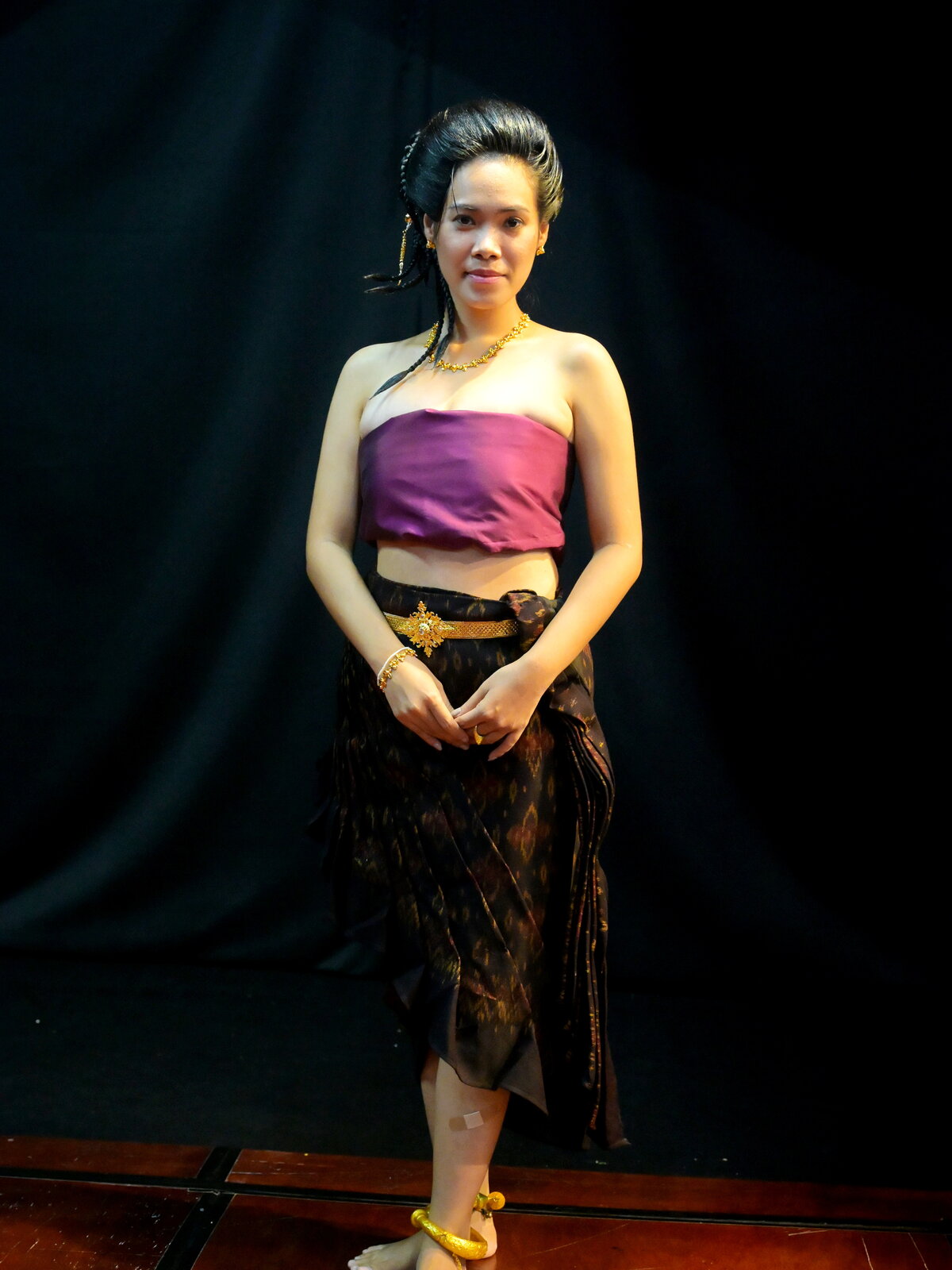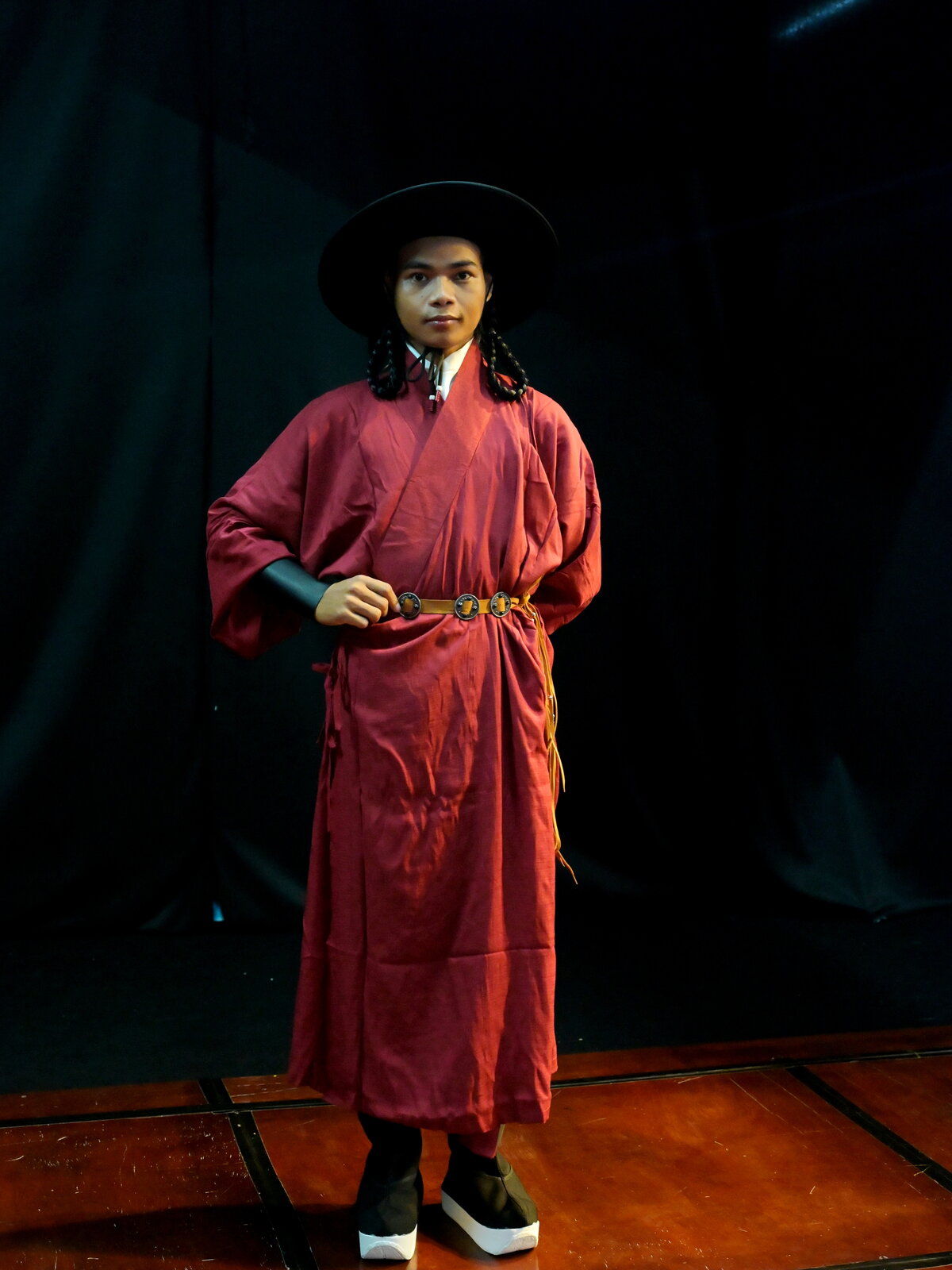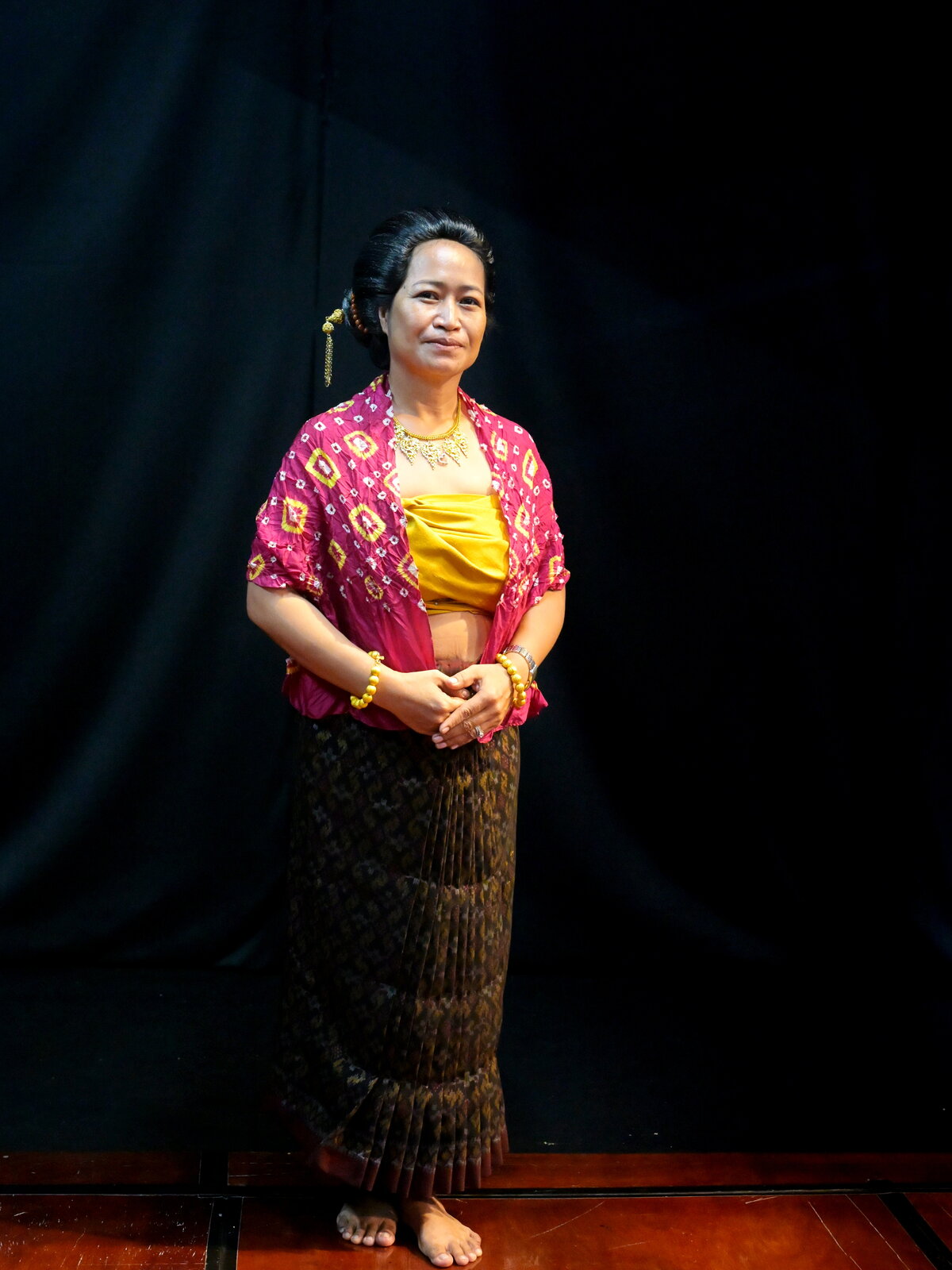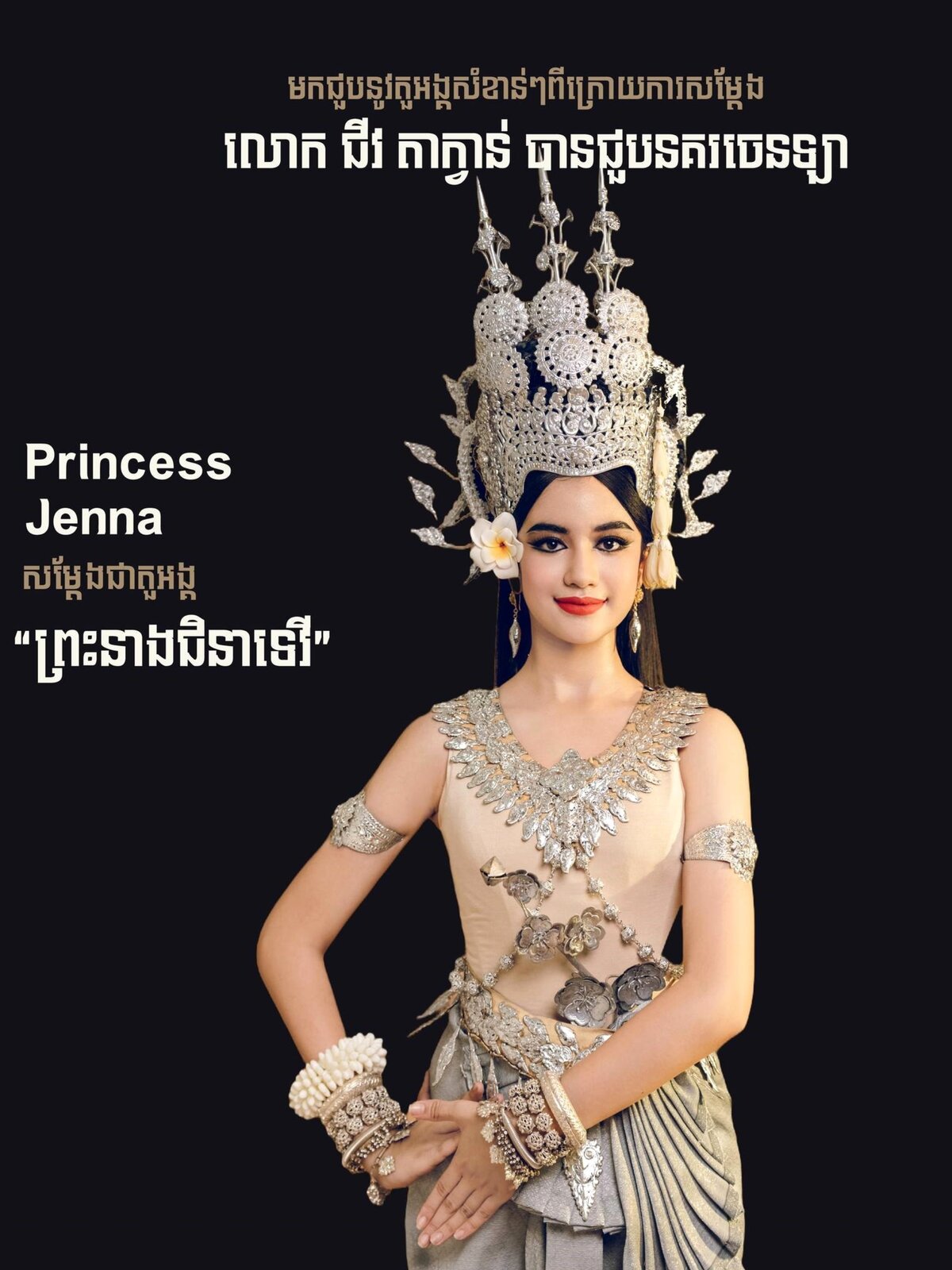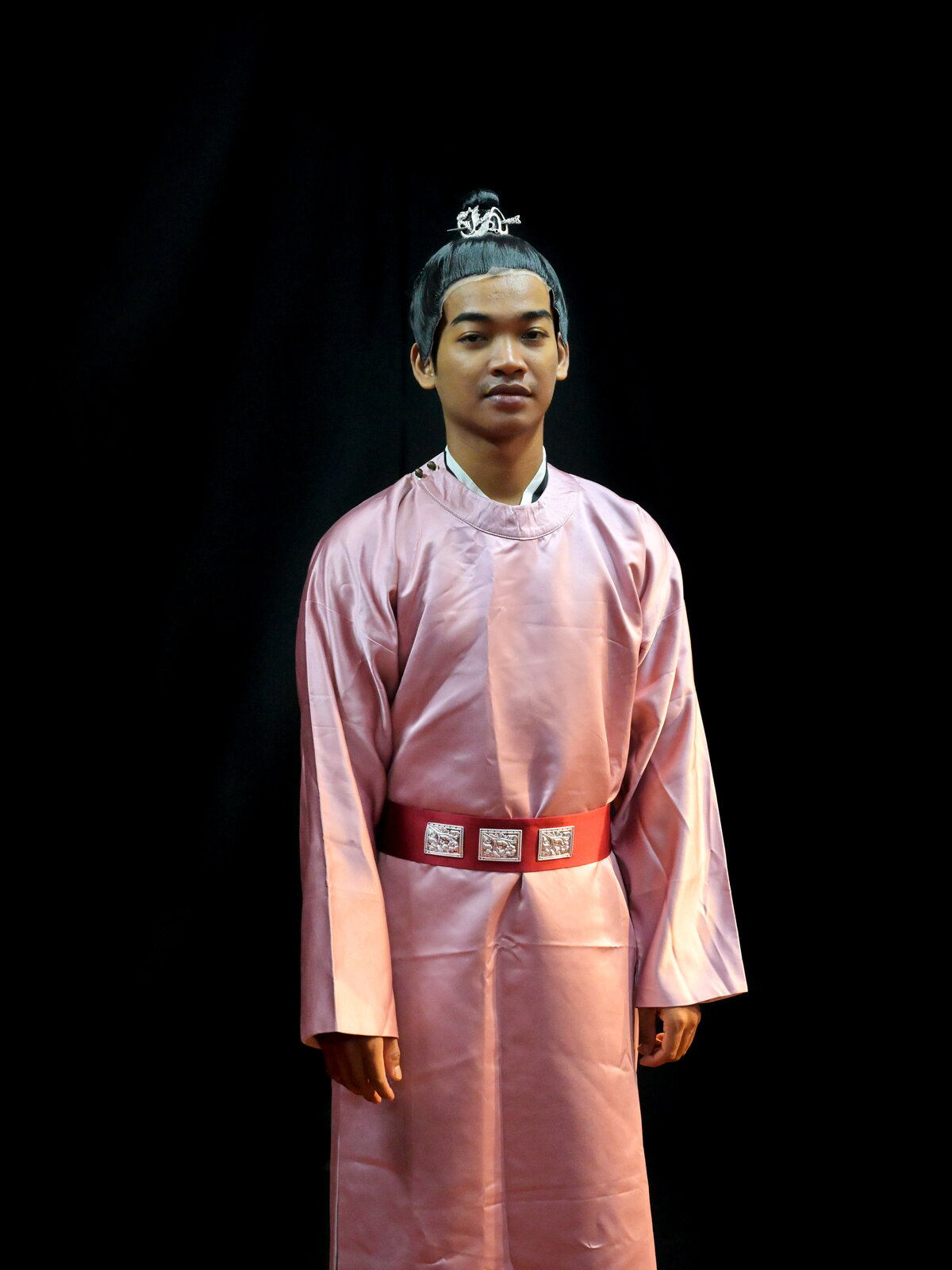His brief - 40 shorts chapters and a preface - yet hyper-detailed account of his eleven months (July 1295-August 1296) spent in Angkor Thom, sailing up the Mekong River to the capital city of the Khmer, has been quoted in (almost) every single academic work about the Angkorian civilization. Novelists and writers around the world have alluded to his writing. And now, for the first time, a stage production combining Khmer classical lakhon dance, hints to Chinese opera, battle scenes and a sweet love story is presented to the Cambodian public on 29 December.
Zhou Daguan in the Kingdom of Chenla (លោក ជីវ តាក្វាន់ បានជួបនគរចេនឡា, with the "lok" form of address before his name) is a 15-scene, one-of-a-kind performance written by Prince Sisowath Tesso and co-directed by Professor Tith Sarith and Professor Soung Sopheak, in collaboration with the Princess Buppha Devi Dance School. With the support of the China Embassy, it is also a spectacular event closing 2024 as “Cambodia-China People-to-People Exchange Year”.
We know little of Chinese writer-traveler Zhou Daguan [Chinese 周达观 , Khmer ជីវតាក្វាន់(chiv takvan), Vietnamese Chu Đạt Quan, Thai โจวต้ากวาน (cho wta kwan)], except that he was born in Southern China Wenzhou around 1270, that he was still alive in 1346 when he preface an author known to be a bon vivant, and that he observed, admired (sometimes frowned upon) and cherished everything he saw in Chenla, the name of Cambodia in Chinese literature of the time.
From boats to flora to astonishingly beautiful temples to New Year festivities, he "saw it all", as his adopted name "Daguan" expresses. But above all, he was fascinated by the people of Angkor, the elegance and freedom of the women, the cohabitation of religious beliefs, the collective reverence to the king (Indravarman III then), the legends, the way people wrote, spoke, and interacted with the numerous Chinese residents (exiles, merchants, sailors attracted by a luscious country...) in the city.
As Prince Tesso Sisowath remarked, "there are some parts of Zhou Daguan's account that remain debated among researchers but this production is above all a fiction, a tale of cultural discovery, a love story involving a Khmer village girl and a young Chinese man - Zhou Daguan's imaginary nephew -, with the forbearing intervention of the king's youngest daughter."
Even if this post is not a spoiler, let us note that the show clears up several interpretation points in Zhou's account, such as the "effeminate boys", "mignons", "transvestites" learned translators have erroneously found in the Erxing ren 二形人 of the Chinese text, literally “people with two forms or appearances”. "Intersex", it is called now, and the term "katoey ខ្ទើយ" reflects the very modern concept of "gender fluidity".
So, time to book seats for the two special performances on 29 December, and to marvel at a cast of 50 talented dancers, actors, Khun Khmer fighters, including: Tan Chanmadola as Zhou Daguan, Khem Dy Julie as Soma, Pich Reach as Shanj, Keo Van Kosal as Emperor Chengzong of Yuan Dynasty, and Princess Norodom Jenna - who speaks a flawless Chinese and will debut as a classical Khmer dancer - as Preah Neang Jenna Devi.
Book your seats
- Check Princess Buppha Devi Dance School's new website
- All you want to know about Zhou Daguan on Angkor Database



